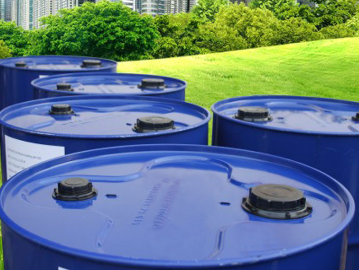
Polyether amine is a type of polymeric material that has gained significant attention in various industrial applications due to its unique properties and versatile nature. In this article, we will discuss the advantages and limitations of polyether amine in industrial applications.
Advantages of Polyether Amine:
1. Excellent adhesion: Polyether amine has excellent adhesion properties, making it an ideal material for use in coatings and adhesives. It can form strong bonds with a wide range of substrates, including metals, plastics, and composites.
2. Chemical resistance: Polyether amine is highly resistant to a wide range of chemicals, including acids, bases, and solvents. This makes it a suitable material for use in environments with harsh chemical exposure.
3. Flexibility: Polyether amine is highly flexible, which allows it to be easily molded and shaped into different forms. This flexibility makes it a versatile material that can be used in a wide range of applications.
4. Low viscosity: Polyether amine has low viscosity, which allows for easy mixing and processing. This makes it a cost-effective material for use in industrial processes.
5. Fast curing: Polyether amine has a fast curing time, which allows for quick production and turnaround times in industrial applications. This makes it a preferred material for applications that require rapid processing.
Limitations of Polyether Amine:
1. Moisture sensitivity: Polyether amine is sensitive to moisture, which can lead to premature curing and decreased performance. This limits its use in applications where exposure to moisture is a concern.
2. UV sensitivity: Polyether amine is sensitive to ultraviolet (UV) radiation, which can cause degradation and loss of performance over time. This limits its use in outdoor applications where exposure to UV radiation is a concern.
3. Cost: Polyether amine can be more expensive than other types of polymers, which can limit its use in cost-sensitive applications. However, the performance benefits may outweigh the higher cost in some cases.
4. Limited temperature resistance: Polyether amine has limited temperature resistance compared to other polymers, which can limit its use in high-temperature applications. It may not be suitable for applications where exposure to high temperatures is a concern.
5. Sensitivity to contaminants: Polyether amine can be sensitive to contaminants, such as dust and dirt, which can affect its performance. This requires careful handling and storage to maintain the quality of the material.
In conclusion, polyether amine offers several advantages in industrial applications, including excellent adhesion, chemical resistance, flexibility, low viscosity, and fast curing. However, there are limitations to consider, such as moisture sensitivity, UV sensitivity, cost, limited temperature resistance, and sensitivity to contaminants. Overall, polyether amine is a versatile material that can be used effectively in a wide range of industrial applications with proper consideration of its advantages and limitations.